|
Click Here to view this email in your browser
NACDEP 2023 Spring Newsletter
Colleagues: Greetings! Welcome to the spring 2023 newsletter. We are counting down the days to Coeur d’Alene, and the newsletter has a good deal of information about the conference. But as usual, it has some other very interesting and useful items as well.
I want to express my appreciation to Rebecca Dudensing, who has served an excellent term as President. Be sure to check out her column right below this Intro, as well as five important miscellaneous items she submitted that you should be aware of. I also want to welcome Crystal Tyler-Mackey as our new President. We are fortunate to have such fine leadership in NACDEP.
Happy reading until Coeur d’Alene!
Thomas W. Blaine, PhD
Associate Professor
Ohio State University Extension
NACDEP Newsletter Editor
President's Column
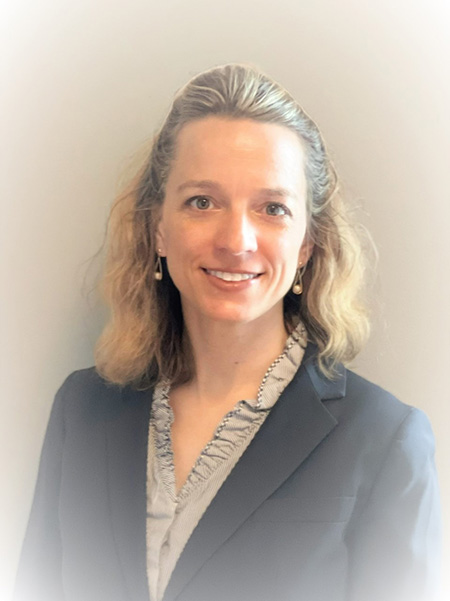
Submitted by Rebekka Dudensing, NACDEP President
Thank you from your outgoing president.
This newsletter issue is filled with conference reminders, publication and award opportunities, professional development events, and program ideas. I’m always amazed at the number, variety, and quality of our members’ programs. I encourage you to take advantage of the opportunities mentioned in the newsletter. Submit the award nomination or the proposal. Attend the webinar. Take part fully in all NACDEP and Extension have to offer. April 30-May 3 we will meet in Coeur D’Alene, Idaho, to share our programs in person. I hope to see many of you there as we learn from each other, network, celebrate, and engage with new and old friends.
My message in this column is simple: thank you. Thank you to the members who allowed me to serve you this past year. Thank you to the current officer team, including committee chairs, and the new members who will soon join us. Thank you outgoing officers Melinda Grismer, Molly Donovan, Katie Hoffman-McFarland, Joy Moten-Thomas, John Philips, and Kara Salazar. Thank you to the committee members who make our programs, awards, and communications possible. Thank you to the conference committee who has served twice (virtually in 2021 and now in person). And thank you to association manager Ricky Atkins, who does so much work behind the scenes.
Rebekka Dudensing, NACDEP President, 2022-23
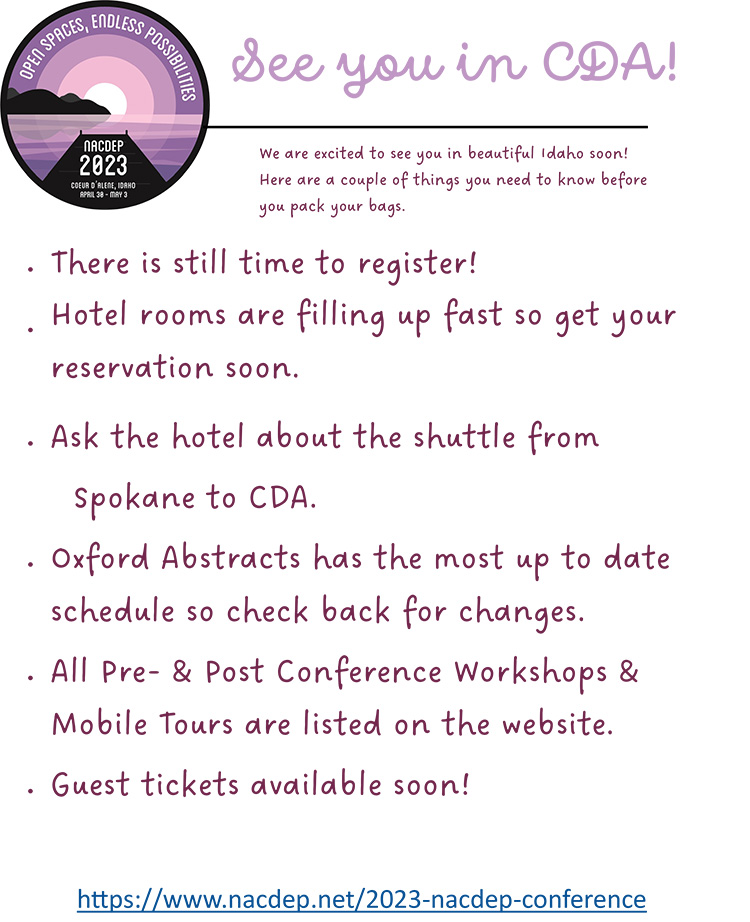
Five Important NACDEP Items
Submitted by Rebekka Dudensing, President
- JCEP Award
- NACDEP Silent Auction
- 2025 Conference Proposal Applications Open
- PILD Conference
- CDS Call for Book Proposals
(1) JCEP Excellence in Extension Engagement Award
Applications for the JCEP Excellence in Extension Engagement Award are due May 31. This award recognizes high quality, evidence-based Extension work that has documented outcomes and impacts with clientele and is strengthening the Extension profession. Learn more at https://www.jcep.org/.
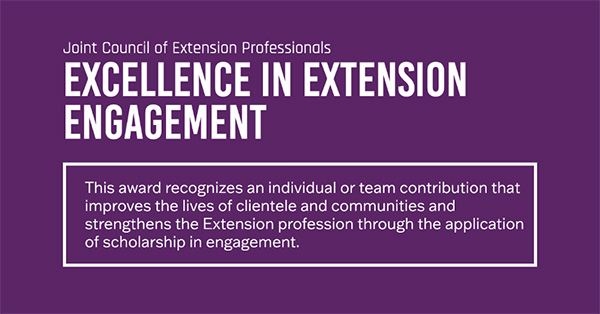
(1) NACDEP Silent Auction
NACDEP’s annual silent auction takes place during the conference and supports our endowment and future conference scholarships. There is always a fun selection of items available for sale for a good cause. Please consider donating an auction item this year. Small, easily packable items are best. We do not provide shipping options so most items should fit in carry-on luggage. Items that represent either our host city or state or your home state are always popular. Examples include small games; arts, crafts, or jewelry; books by local authors or from your university press.
If you have questions about the silent auction, please contact Rebekka Dudensing at [email protected].
(2) 2025 Conference Site Application Open
Interested in hosting the 2025 NACDEP conference? The site selection application is posted on the NACDEP website. The conference typically rotates between Extension regions, and preference will be given to the Northeast Region in this round. The application must be submitted to Rebekka Dudensing, NACDEP Past President, and Ricky Atkins, Association Manager, via e-mail to both [email protected] and [email protected]. Submissions of applications should be made by June 30, 2023 for full consideration. Please speak with your regional rep, Rebekka Dudensing, or past hosts if you have questions.
(3) PILD Conference
Public Issues Leadership Development (PILD) Conference is open to all Extension professionals in 1862, 1890, and 1994 institutions. JCEP invites you to learn and practice leadership skills, meet federal partners, and explore national priorities and funding streams. Learn more at https://www.jcep.org/conferences.

(5) CDS Call for Book Proposals
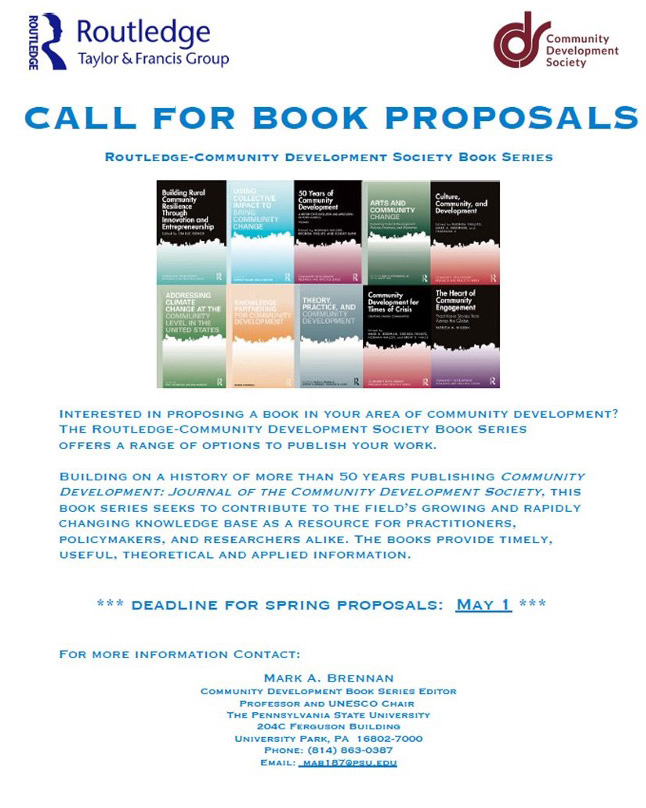
RRDCs Release Findings from National Listening Sessions on Rural Community, Economic, and Workforce Development
Submitted by the Regional Rural Development Centers
February 27, 2023—Today the nation’s four Regional Rural Development Centers (RRDCs) are releasing their findings from a comprehensive initiative aimed at identifying the critical investments needed to build community capacity and improve quality of life in rural America. Their report, Investing in Rural Capacity: Comprehensive Summary of National Rural Development Stakeholder Listening Sessions, can be used by a broad audience of practitioners, decision makers, and government agencies to inform where programmatic efforts and resources may be most effective in tackling key issues facing rural communities.
The report summarizes results from the initiative's eight virtual listening sessions, which convened stakeholders to identify rural development investments they viewed as the highest priorities for U.S. rural communities on the immediate horizon. These dialogues, which were facilitated by members of the Land-Grant University Cooperative Extension Service, included four sessions conducted at the regional level focusing on issues of regional importance, and four national sessions on topics of widespread importance, including:
● Broadband and the Digital Divide;
● Rural Innovation and Entrepreneurship;
● Workforce Development, Training and Education; and,
● Community Planning, Leadership and Governance.
Participants—who represented a wide range of stakeholder organizations including Land-Grant Universities, nonprofits, government agencies, and others—were asked to identify, discuss, and prioritize future investments, including education, outreach, technical support, research, and other efforts. Several themes emerged from the eight listening sessions. Participants identified the need to:
● support and increase collaborative efforts across disciplinary, organizational, and geographic boundaries;
● inform decision making through place-based and community-engaged research and best practices;
● involve underserved groups and pursue greater equity; and
● build climate and related economic resilience into local, regional, and national planning.
The report provides eight overview summaries—one for each of the national topics explored during the listening sessions, and one for each of the four geographic regions. It also integrates additional qualitative data from a national survey conducted in Fall 2021, building on the survey’s quantitative findings published in October 2021. The entire report, as well as topic-specific and region-specific sections of the report, are available for download on the RRDC website: https://bit.ly/RRDC-listening-sessions.
Funding to conduct this initiative was provided by the United States Department of Agriculture’s (USDA) National Institute of Food and Agriculture (NIFA) via a Cooperative Agreement (Federal Award Number 2019-41595-30123) and via the New Technologies in Agricultural Extension Program, which is coordinated by the Extension Foundation. The Regional Rural Development Centers (RRDCs) are funded to strengthen the capacity of local citizens to guide the future of their rural communities. They are charged with conducting research and outreach programming that builds the capacity of the Land-Grant University System to address crucial needs in our nation’s rural communities. Each RRDC serves a defined geographic region and tailors its programs to address the particular needs and priorities of stakeholders within its boundaries. They also collaborate on issues that span regions, and in turn connect their regional partners to emerging Federal issues and priorities. Learn more at https://rrdc.usu.edu.

Michigan Economic Development Corporation and MSU Extension Forge Partnership to Better Michigan Communities through Fresh Sets of Eyes
Submitted by Andy Northrup
Michigan State University Extension
First Impressions Tourism (FIT) assessment program assists communities in understanding themselves and unique assets more through visitor experiences.
Michigan State University (MSU) Extension bridged a two-year partnership with the Michigan Economic Development Corporation (MEDC) in early 2021 for the purpose of offering the award-winning First Impressions Tourism (FIT) assessment program to select Redevelopment Ready Certified (RRC) communities. The partnership made available FIT assessments for four RRC communities between 2021 and 2022. The four participating communities were Grayling (2021), Cassopolis (2021), Allegan (2022), and Hart (2022).
As part of the FIT program process, each community is responsible for hosting a community forum. These forums are, at most, three-hour events open to anyone interested in learning what first-time visitors experienced in their respective community. Community forums are organized and hosted by Community Leadership Teams (CLT), which are typically of public, private, and/or non-profit sector leaders from the host community. Each RRC community hosted a forum approximately three-to-five months after receiving a team of first-time visitors from MSU Extension.
A total of 318 people participated in the community forums hosted by all four communities at various times throughout 2021 and 2022. Of 318 participants, 73 voluntarily took MSU Extension’s short-term survey designed to evaluate learning and awareness as well as their potential next steps within 1-6 months.
Survey questions posed to participants included:
- My awareness of community assets increased as a result of participating in this program.
- 82% Strongly Agreed/Agreed
- My knowledge of how to maximize assets increased as a result of participating in this program.
- 88% Strongly Agreed/Agreed
- The program information shared will help strengthen collaboration within the community.
- 87% Strongly Agreed/Agreed
- I envision myself or community using the information shared to advance tourism in my community.
- 93% Strongly Agreed/Agreed
Participants were asked a series of qualitative questions after participating in their community forum. Qualitative responses garnered from all four forums demonstrated the significance FIT carries for participating communities, after a pause due to the onset of the COVID-19 pandemic in 2020.
Participants were asked if FIT helped increase their awareness of assets in their community. (Responses are direct quotes from the survey.)
- Certain things are taken for granted. This (FIT) helped to remind everyone what assets we truly have in our community.
- I feel when you live in a place for many years you get somewhat blinded to the natural resources/activities that are available to enjoy.
- The things I didn’t see in our community as highlights were on the top of the list of assets!
- FIT offered quality insight that highlighted realistic areas of improvement.
- FIT pointed out how many things are community offers as you wouldn’t know by driving through the town.
- As a new member of the community, it helped me to understand where improvements could be made and how I might be able to “plug in.”
- Listing all the assets and seeing the length of that list gave me a better sense of what we have beyond the Village itself.
- I think the program (FIT) helped to demonstrate the importance of all assets and how they work together.
- This assessment helps us discover our “blind spots” that we have as a community.
Participants were then asked to specify short-term (1-6 months) actions they intend to take as a result of participating in the FIT program?
- I think we will add businesses, places to eat, shop, etc. to our website and work on way finding signage.
- Becoming involved with community and attend meetings
- Be more involved with organizing community events
- Continue to push for more diversity with arts/murals around the community
- We intend to upgrade our website.
- Help with printed materials and a map which then can be added to the website.
- I will volunteer to help on a committee
- Get involved!
- Get more info on hiking and biking trails nearby so I am more knowledgeable to pass on info to customers who are interested.
- Conduct survey of Chamber members and include questions on how they feel tourism impacts their business(es).
- As a City Council member, I will press my fellow Council members to form an action plan to address issues highlighted in the presentation.
Michigan State University Extension’s First Impressions Tourism (FIT) assessment program provides participating communities with helpful suggestions from first-time visitors to improve their community’s tourism. Our “FIT Successes Report – April 2021 Edition,” highlights a wide range of community action and successes across multiple Michigan communities between 2017-2019.
Overall, FIT helps communities learn about their strengths and weaknesses through the eyes of first-time visitors evaluating their community in an asset-based manner on multiple tourism-related community metrics. Are you interested in learning more about FIT? If so, consider visiting MSU Extension’s Tourism Programs website to learn more.
Moving forward, MSU Extension and the MEDC are continuing this partnership for another two years. An additional four communities will be selected to participate in FIT over the course of 2023 and 2024.
For more information, visit https://extension.msu.edu. To have a digest of information delivered straight to your email inbox, visit https://extension.msu.edu/newsletters. To contact an expert in your area, visit https://extension.msu.edu/experts, or call 888-MSUE4MI (888-678-3464).
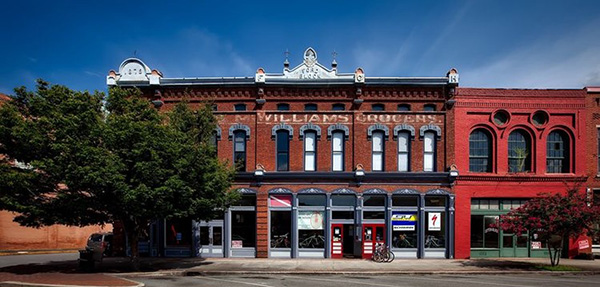
National Extension Tourism (NET): Raising the Bar in Sustainable Tourism and Outdoor Recreation
New publication documents a wide array of tourism-related applied research and outreach programs.
Submitted by Kristen Devlin
Penn State
A new publication from the Extension Foundation documents innovative Cooperative Extension and Sea Grant programs in sustainable tourism and outdoor recreation. The programs highlighted—from Oregon State University, University of Georgia, Michigan State University, South Carolina Sea Grant Consortium, West Virginia University, Utah State University, University of Minnesota, and University of Vermont—are models for Extension teams seeking to address opportunities in sustainable tourism, outdoor recreation, and community economic development. The publication, "The NET Effect: Members of the National Extension Tourism Network Help Raise the Bar in Sustainable Tourism and Outdoor Recreation," is available as a flipping book in the Extension Foundation library or as a PDF on the NET website.

The NET Effect is an outcome of a partnership of the National Extension Tourism (NET) Design Team, the Northeast Regional Center for Rural Development (NERCRD), and the New Technologies for Ag Extension (NTAE) grant program. The NET Design Team, in collaboration with the NERCRD, was one of more than 20 teams awarded a 2022 NTAE grant, which gave NET critical funding and support to scale up the network’s activities. More outcomes of this project are compiled here.
NET invites NACDEP colleagues to view The NET Effect and consider some of the ways they can leverage the publication:
1. Network.
Like what you see? Connect with NET on LinkedIn.
2. Collaborate.
See a program you’d like to replicate in your community? Connect with NET members to learn more. A great place to connect is at the upcoming NET conference, for which there currently is an open call for abstracts and award nominations.
3. Advocate.
Show this publication to your Extension Director and talk about ways in which tourism and outdoor recreation programming can be leveraged in your state.
Share Your Rural Grocery Story with Us
Submitted by Hannah Jenkins
Kansas State University
The Rural Grocery Initiative at Kansas State Research & Extension is currently developing the Rural Grocery Specialist Certificate. Over the past several months, we have been working with subject matter experts to develop lessons to train new rural grocery specialists. To ground this curriculum in reality, we are looking for additional example stories to highlight in the course.
We want to hear from grocers, community members, and resource providers! Share a 1-3 minute story about any of the following:
- A favorite story or cautionary tale of a rural grocery business transition;
- Ways your local store is involved in the community;
- Creative ideas implemented by a rural grocery store;
- Other rural grocery tidbits, anecdotes, etc.
You can share your story by sending us a video or by joining one of our Open Calls.
If you have questions about sending videos or registering for an Open Call, please contact the Rural Grocery Initiative at [email protected].
|